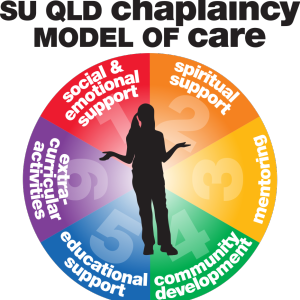How many times have you heard that ‘breakfast is the most important meal of the day’? Well, while the jury is still out on whether this is just an urban myth or actual scientific fact, there are some pretty strong arguments for breakfast being an important meal in the day and an important daily habit for overall health and wellbeing.
Breakfast is all about ‘breaking the fast’. Typically when people get up in the morning, they haven’t eaten for 8-10 hours and breakfast refuels the body with useful energy and nutrients. Children who eat breakfast each day are much more likely to meet their daily nutritional requirements, because a good breakfast can provide children with up to a third of their daily nutrient needs. They can concentrate better and have a longer attention span, helping them to learn and study better. They can also perform better physically after eating breakfast as there is more energy available to their muscles.
Breakfast can also improve behaviour and mood. Children who don’t eat breakfast may not make up for the nutrients not consumed with the rest of their day’s intake. These children are at a higher risk of being overweight and/or obese, as breakfast is often replaced by mid-morning snacks that tend to be high in fat, sugar and salt. Skipping breakfast can also lead to overeating throughout the day, which also increases the risk of becoming overweight or obese.
Some children are not able to have breakfast at home. This can be for a number of reasons, including there being no food in the house or busy morning routines. In response to this, schools, churches and/or community groups can choose to run school-based breakfast clubs, ensuring that children get the energy and nutrients they need to make the most of their school day.
Data from the Chaplaincy Snapshot tells us that school chaplains are playing a useful role here, running over 130 breakfast clubs across the state each term. The specific benefits of these programs are that they provide essential nutrition; improve health and learning outcomes; provide opportunities for socialising; and increase participation in and engagement with school.
Breakfast Clubs are just another way that school chaplains are promoting the social and emotional wellbeing of students and supporting schools to achieve their learning and wellbeing goals.
References
- Good Start Breakfast Club – http://www.redcross.org.au/good-start-breakfast-club.aspx
- Start the Day Right: A Guide to Healthy and Successful School Breakfast Clubs – https://www.education.tas.gov.au/documentcentre/Documents/Start-the-Day-Right.pdf
- Why is Breakfast Import for Students? – http://www.redcross.org.au/files/Fact_sheet_4_(2).pdf
5. Breakfast Club at Morayfield SS – https://www.youtube.com/watch?v=k_lArsIjRSI
